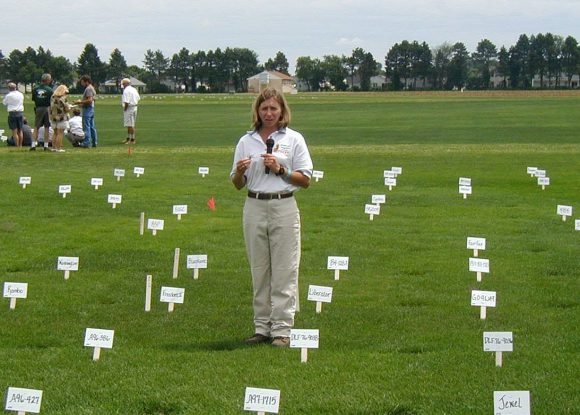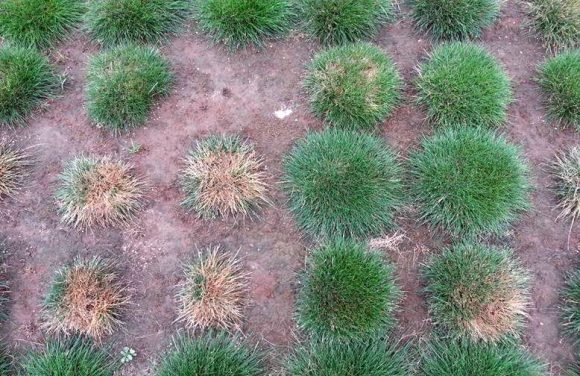
Prof. Stacy Bonos, Department of Plant Biology.
Several faculty from the Department of Plant Biology are part of a multi-state and multi-institution team to be awarded a $5.4 million USDA grant to increase the use of well-adapted fine fescue cultivars that have the advantage of reduced inputs of water, fertilizer, mowing, and pesticides into sustainable landscapes. Rutgers portion of the grant is $1.96 million.
Rutgers lead and co-PI on the project is Stacy Bonos, professor in the Department of Plant Biology, whose Rutgers colleagues include professor William Meyer; research associate Josh Honig; associate professor Ning Zhang; distinguished professor Bingru Huang; extension specialist James Murphy; and extension specialist and director of the Rutgers Center for Turfgrass Science Bruce Clarke. Rutgers focus on the multi-institution project is to find solutions to the plant diseases that affect fine fescue grasses and identify the genetic markers associated with improved low-input turf performance.
The lead principal investigator on the project, “Increasing Low-Input Turfgrass Adoption Through Breeding, Innovation, and Public Education,” is Eric Watkins, professor of turfgrass breeding and genetics in the College of Food, Agricultural, and Natural Resource Sciences at the University of Minnesota. This collaborative project also includes a number of researchers and extension educators from Indiana, Wisconsin and Utah.

Turfgrass variability in summer patch disease in hard fescue.
According to Watkins in a University of Minnesota feature story, “We’ve known for some time that fine fescues can work really well as a low-input turfgrass. We’ve been working on some of the barriers homeowners face for the last several years, and will continue to learn more about these grasses so that we can release new varieties of fine fescues that are well-adapted to our climate.”
“Our ultimate goal is to ensure that consumers have the opportunity to use lower-input grasses, like the fine fescues, which should result in significantly less watering, mowing, fertilization, and pesticide applications,” said Watkins.
The project is funded by USDA’s National Institute of Food and Agriculture (NIFA) through the Specialty Crop Research Initiative, whose goal is “to address the critical needs of the specialty crop industry by awarding grants to support research and extension that address key challenges of national, regional, and multi-state importance in sustaining all components of food and agriculture, including conventional and organic food production systems.”
Read more about the project, its methodology and objectives in the grant summary on the USDA NIFA website.

